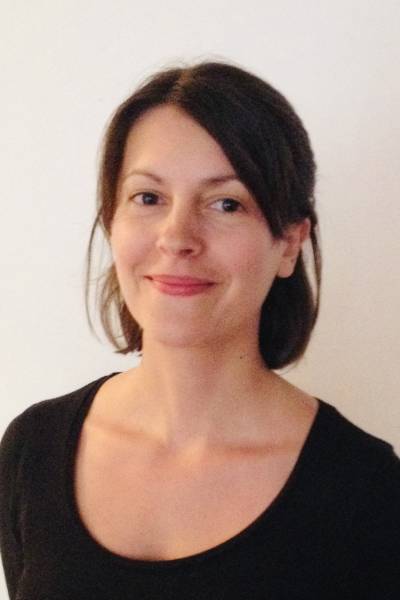Dr Nina Polytimou is a Lecturer in Psychology in the Department of Psychology and Human Development.
What attracted you to take up your position at IOE?
IOE is a world-leading institution, and being part of it allows one to work alongside an excellent team of academics. This high-quality environment gives me constant motivation to progress in both research and teaching. IOE also has a great reputation for generating research with direct impact in education. This makes it an ideal place to host my research, where I investigate the potential of music and music therapy to support different aspects of development and educational achievement.
“Another reason that attracted me to join IOE is its diverse and multicultural community. It is an inclusive and friendly place to be part of!
How long have you been at IOE?
I first joined IOE in 2018 as a lecturer and have been here ever since.
What do you most enjoy about your position and why?
I really enjoy the fact that I get the opportunity to undertake varied responsibilities in teaching and research. I find satisfaction and motivation in each one of them. Also, alternating between roles and meeting different people as part of my day always keeps me engaged and interested.
“What I also enjoy is the supportive working relationships – the sense that I am surrounded by colleagues who are always ready to help me with any inquiries I might have, as well as support me with my progress.
What working achievement or initiative are you most proud of?
In the past two years I am proud to have been awarded UCL grants that allow me to advance my research internationally. For instance, I am currently working towards developing a music therapy intervention for mothers with symptoms of depression and their infants in Greece.
I am also proud of having constructed a research tool, which has been well-received and widely used. The Music@Home is a questionnaire that assesses informal musical interactions in the home of children under 5, which was initially developed in the UK and has been translated in different countries, such as Germany, Italy, China and Greece. It is encouraging to see that this tool opens avenues into investigating family interactions from a creative perspective.
What is the focus of your research and what benefits do you hope your discoveries and/or insights will bring?
My research focuses on examining relationships between musical, cognitive and language skills in young children. I also investigate the effects of musical experience, specifically informal musical interactions between parents and their children.
“Results from my studies suggest that musical skills are associated with language skills, and that early informal musical experience in the family is associated with early communicative development and parent-child attachment.
More recently, I have become very interested in the relationship between musical engagement and socio-emotional skills such as empathy, and in the role of musical interactions in promoting parent-child bonding and wellbeing in the family.
This line of research has important potential for informing early childhood education, as well as provide parents with additional tools to promote their children's language and socio-emotional development.
What's the most important thing you've learned from your students about the subjects you teach?
The most important thing that my students have taught me is perseverance and their incredible capacity for growth. Over the years, I have come across students who initially struggled with some of the concepts in Psychology, but who were eventually able to exceed their own expectations.
This process of improvement shows their resilience and dedication, and has been inspiring for me as their teacher and supervisor. They have taught me that everyone is capable of learning and improving, regardless of their background or initial level of knowledge.
“I feel fortunate to have the opportunity to work with such dedicated students, and I look forward to continuing to learn from them.
Do you think being in London and at UCL benefits your work and why?
UCL has a very strong reputation for academic excellence and innovation. This provides me with access to a range of resources and opportunities for collaboration, including a diverse and talented community of students and academics. It is also a stimulating environment that encourages collaboration and interdisciplinary thinking; this is extremely inspiring for the development of new research projects and ideas.
I also enjoy very much being in London as it is a dynamic city which offers unique opportunities to engage with global trends and with a diverse range of people and communities who may have different perspectives and insights to share.
What other subject outside of your area of specialism interests you?
I am also an active musician and enjoy being surrounded by people who engage in and enjoy music.
Last updated 19 July 2023.
 Close
Close


